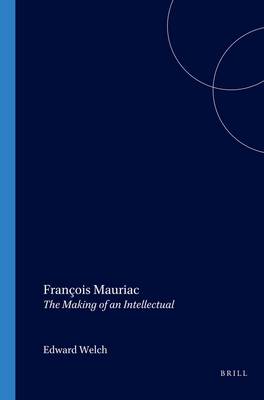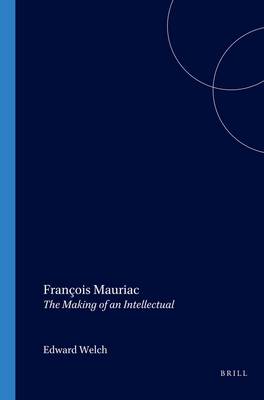
- Afhalen na 1 uur in een winkel met voorraad
- Gratis thuislevering in België vanaf € 30
- Ruim aanbod met 7 miljoen producten
- Afhalen na 1 uur in een winkel met voorraad
- Gratis thuislevering in België vanaf € 30
- Ruim aanbod met 7 miljoen producten
Zoeken
Omschrijving
While François Mauriac's reputation as a novelist is well established, it is often forgotten that fiction forms only part of his output, and that in the post-war years especially, it was principally his activities as a journalist which kept him in the public eye. His interventions in the key debates of the period helped to consolidate his position as a major intellectual alongside Jean-Paul Sartre and Albert Camus.
This book examines the evolution of François Mauriac's career during the twentieth century, and his gradual transformation from novelist to intellectual. Situating Mauriac and his activities firmly in their socio-cultural context, it draws in particular on the insights provided by Bourdieusian sociology to explore the mechanisms and social processes which allow Mauriac to emerge as an authoritative voice of moral conscience. In doing so, it offers new perspective on key moments in his career, from his changing fortunes as a novelist in the 1930s, examined here for the first time through the prism of his reception by the influential Nouvelle Revue française, to his unlikely collaboration with the then-radical L'Express in the 1950s. At the same time, it argues that tracing Mauriac's trajectory helps to crystallise the broader changes affecting the literary and cultural landscape in France during the twentieth century.
This book examines the evolution of François Mauriac's career during the twentieth century, and his gradual transformation from novelist to intellectual. Situating Mauriac and his activities firmly in their socio-cultural context, it draws in particular on the insights provided by Bourdieusian sociology to explore the mechanisms and social processes which allow Mauriac to emerge as an authoritative voice of moral conscience. In doing so, it offers new perspective on key moments in his career, from his changing fortunes as a novelist in the 1930s, examined here for the first time through the prism of his reception by the influential Nouvelle Revue française, to his unlikely collaboration with the then-radical L'Express in the 1950s. At the same time, it argues that tracing Mauriac's trajectory helps to crystallise the broader changes affecting the literary and cultural landscape in France during the twentieth century.
Specificaties
Betrokkenen
- Auteur(s):
- Uitgeverij:
Inhoud
- Aantal bladzijden:
- 204
- Taal:
- Engels
- Reeks:
- Reeksnummer:
- nr. 290
Eigenschappen
- Productcode (EAN):
- 9789042021129
- Verschijningsdatum:
- 1/01/2006
- Uitvoering:
- Paperback
- Formaat:
- Trade paperback (VS)
- Afmetingen:
- 155 mm x 234 mm
- Gewicht:
- 290 g

Alleen bij Standaard Boekhandel
+ 196 punten op je klantenkaart van Standaard Boekhandel
Beoordelingen
We publiceren alleen reviews die voldoen aan de voorwaarden voor reviews. Bekijk onze voorwaarden voor reviews.








